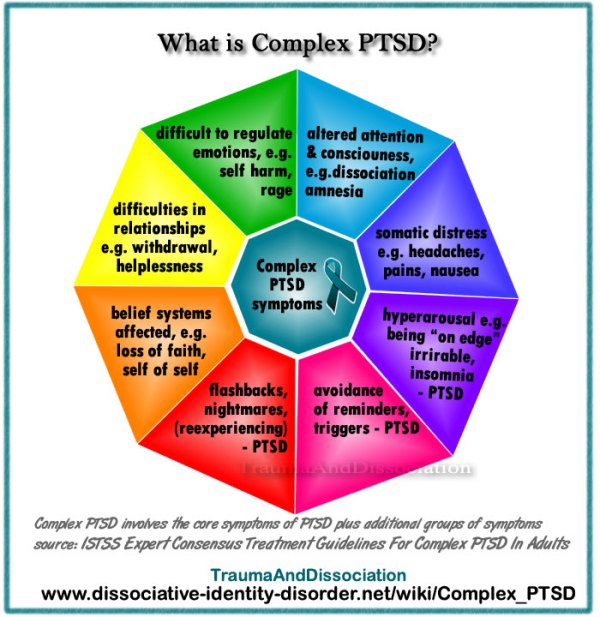Children witnessing the tragic death of a loved one in a car accident may exhibit some of the common symptoms of complex PTSD. A child who was sexually or physically abused as a child can develop symptoms of complex PTSD as well as PTSD. The child is then often referred to a child sexual abuse center where the child's needs are addressed. At such centers, the children are educated about the trauma and its effects on their lives and learn coping mechanisms for surviving such trauma.
Children who were the victims of abuse as children are particularly vulnerable and may require special attention. It may take a long time for these children to overcome their past trauma and to become healthy and happy people. While it may take years to heal, children are not required to take psychotherapy sessions on their own, and many children will receive the appropriate psychotherapy and medical care from a licensed professional.
Psychotherapy helps parents and caregivers understand their child's environment and behaviors and how those behaviors can be altered. Psychotherapy can also help the child cope with the trauma and address the feelings associated with that trauma. Psychotherapy can help the child gain insight into his or her feelings and behaviors and to develop ways to cope with those feelings and behaviors.
Children who suffer from complex PTSD often have to take therapy sessions alone. Often, children are afraid to share their experiences and their emotions with others. The therapist can help the child realize that he or she is not alone, and that there are others who have experienced similar traumas as they did.

Treatment of complex PTSD can be highly individualized
The goal of therapy is to identify and treat the underlying cause of the disorder, while also trying to treat the child's symptoms, which is usually the hardest part of therapy. Often times, it takes several treatments before the disorder is completely treated, with success in the long term ranging anywhere from thirty to ninety percent.
Symptoms of complex PTSD include depression, anxiety, nightmares, fear of death, memories of trauma, social avoidance, and panic attacks. To determine if a child is suffering from PTSD, a psychologist or family member can talk to the child, ask the child to describe the symptoms, and then assess what he or she considers the symptoms. The child may need to visit a child sexual abuse center to determine if the child is suffering from PTSD or not. Once a child is identified as suffering from complex PTSD, a treatment plan can be developed that focuses on the cause of the problem and helps the child cope with his or her symptoms, and helps the child adjust to him or her. environment.
If you suspect your child may be suffering from complex PTSD, talk to your family doctor or mental health professional to see if you can schedule a consultation to see if the condition is right for your family. You may be able to refer you to a therapist who specializes in treating children. Most child therapists are qualified and trained to work with children with PTSD and will work closely with your family doctor or therapist to address all of your concerns, help your child, and ensure your child receives effective psychotherapy.
Treatment at child sexual abuse centers, and even in a mental health center, are based on the concept that children are capable of recovering from this trauma and will heal from the trauma they have suffered. When treating complex PTSD, a therapist will work to teach the child how to recognize symptoms, understand his or her triggers, and then develop a plan to cope with the symptoms as well as help the child create healthier relationships in his or her life.